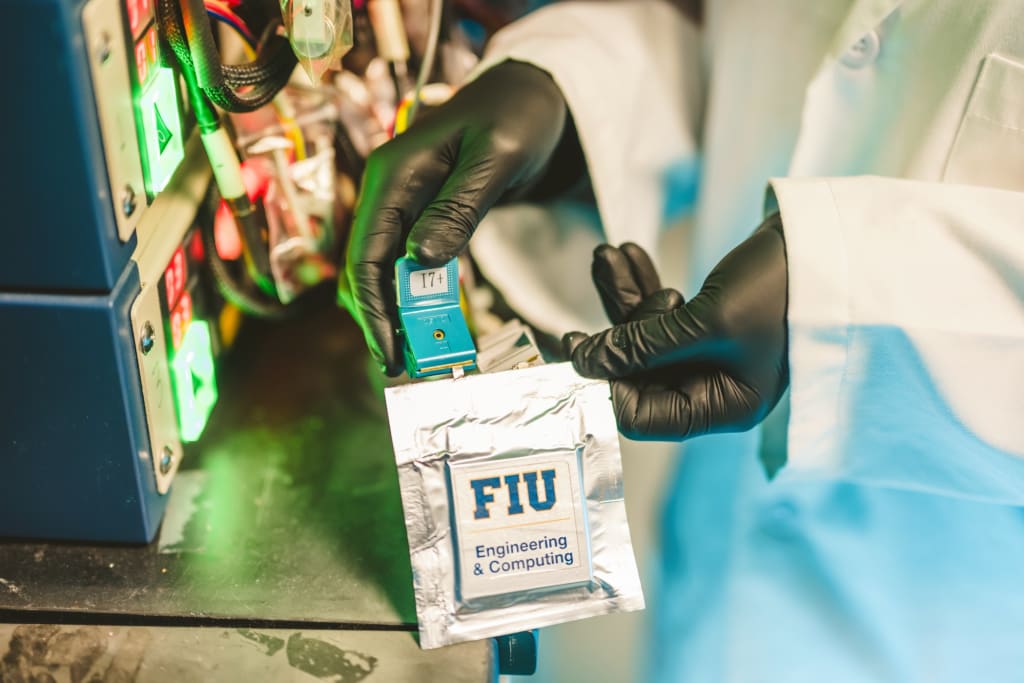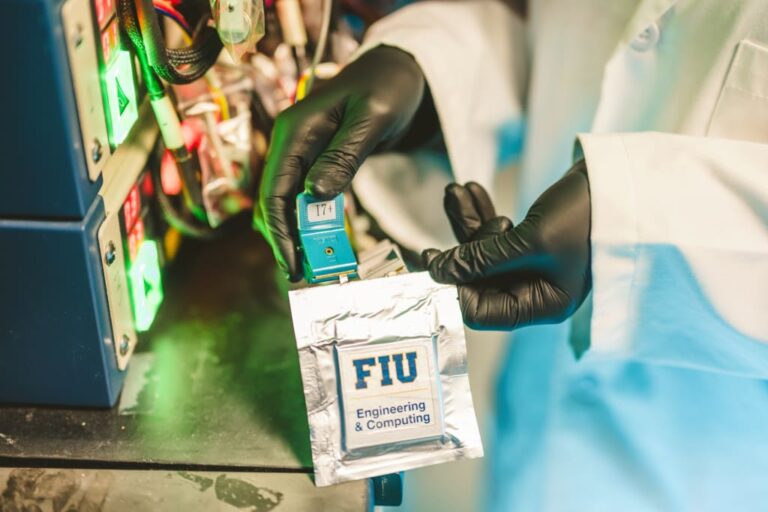As electric vehicles (EVs) become increasingly common on roads worldwide, a recent global survey revealed that about 46% of EV owners in the United States have considered switching back to gasoline-powered cars. The primary reason for this consideration is the inconvenience associated with charging. While the average range of EVs has improved over time, drivers’ expectations continue to outpace the capabilities of current lithium-ion batteries.
Researchers at Florida International University (FIU) have made a significant breakthrough in next-generation battery technology known as beyond lithium-ion. This innovation could make owning an EV more convenient in the future. Bilal El-Zahab, an associate professor in the College of Engineering & Computing, led the research, stating, “We started working with these next-generation battery chemistries eight years ago. The first charging cycle was great. By cycle 20, it was a useless lump of metal.”
The FIU team focused on lithium-sulfur, a beyond lithium-ion technology that is lightweight, less expensive, and incredibly energy-dense. This means EVs can travel farther, and devices like laptops and smartphones can run for twice as long. However, the lithium-sulfur chemistry that enables long battery life ultimately undermines its longevity, rendering it ineffective after about 50 complete charges.
After years of testing, El-Zahab’s team discovered that introducing a small amount of metal into the mix could lengthen the lifespan of lithium-sulfur batteries. Specifically, they found that adding nanoparticles of platinum to the sulfur side of the battery stabilizes its performance and boosts storage capacity, bringing it closer to commercial viability. The results were published in Energy and Environmental Materials, showing a 92% retention after 500 charging cycles.

Sulfur is well-suited for batteries due to its high energy density and abundance. It is a byproduct of the natural gas industry, making it more affordable than lithium-ion batteries. The average cost of current batteries is around $100 per kilowatt hour, while lithium-sulfur batteries average around $60 per kilowatt hour.
The researchers addressed a significant challenge with lithium-sulfur batteries: the formation of lithium-containing sulfur compounds (polysulfides) during charging, which causes a mossy build-up on the lithium side, reducing energy efficiency and leading to battery deterioration. By adding tiny nanoparticles of platinum, they guided the lithium ions, ensuring smooth flow and preventing damaging chemical reactions.
El-Zahab’s lithium-sulfur battery is currently undergoing third-party testing before it can be licensed and commercialized. This breakthrough has the potential to make EVs more convenient and affordable, paving the way for wider adoption of electric vehicle technology.



